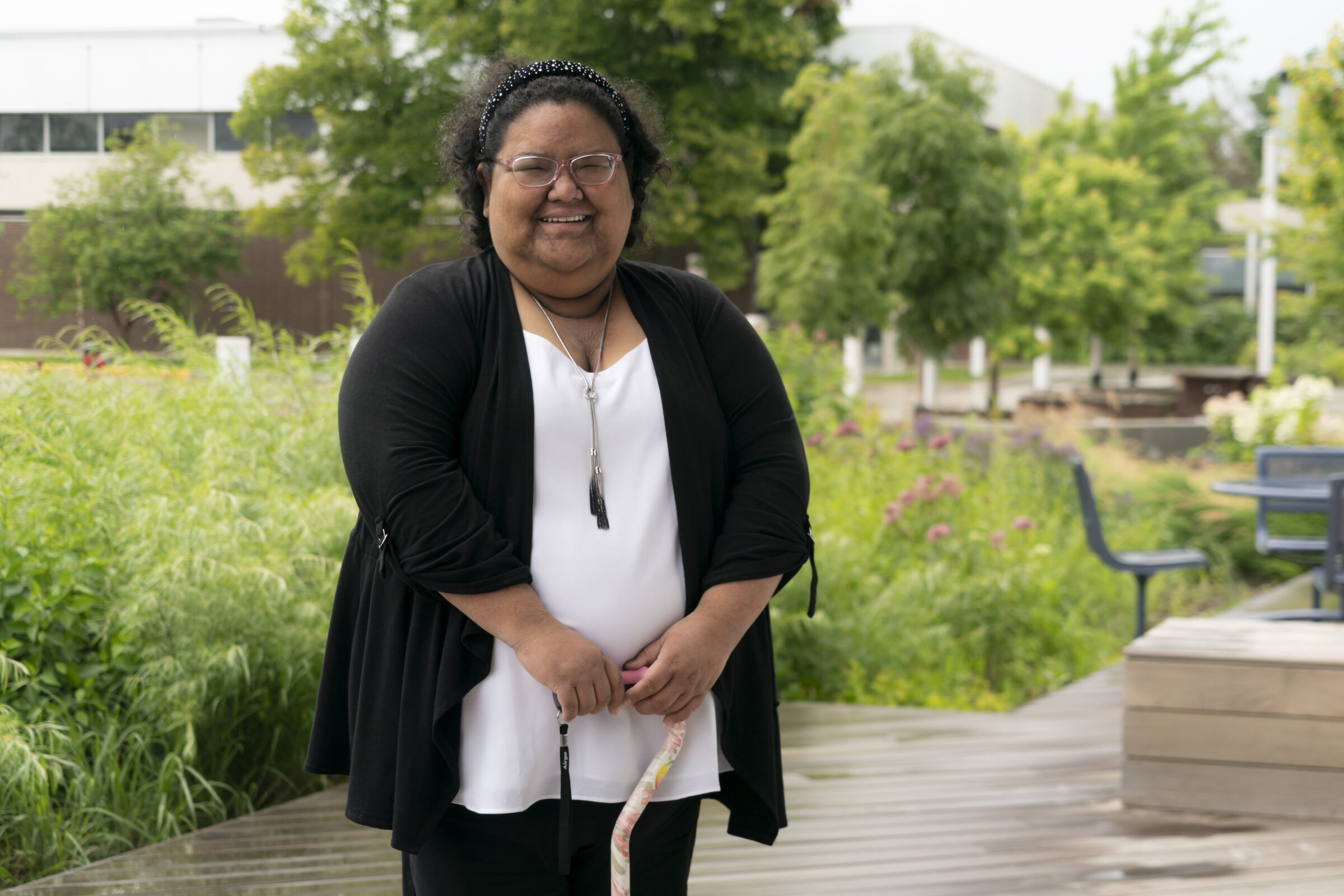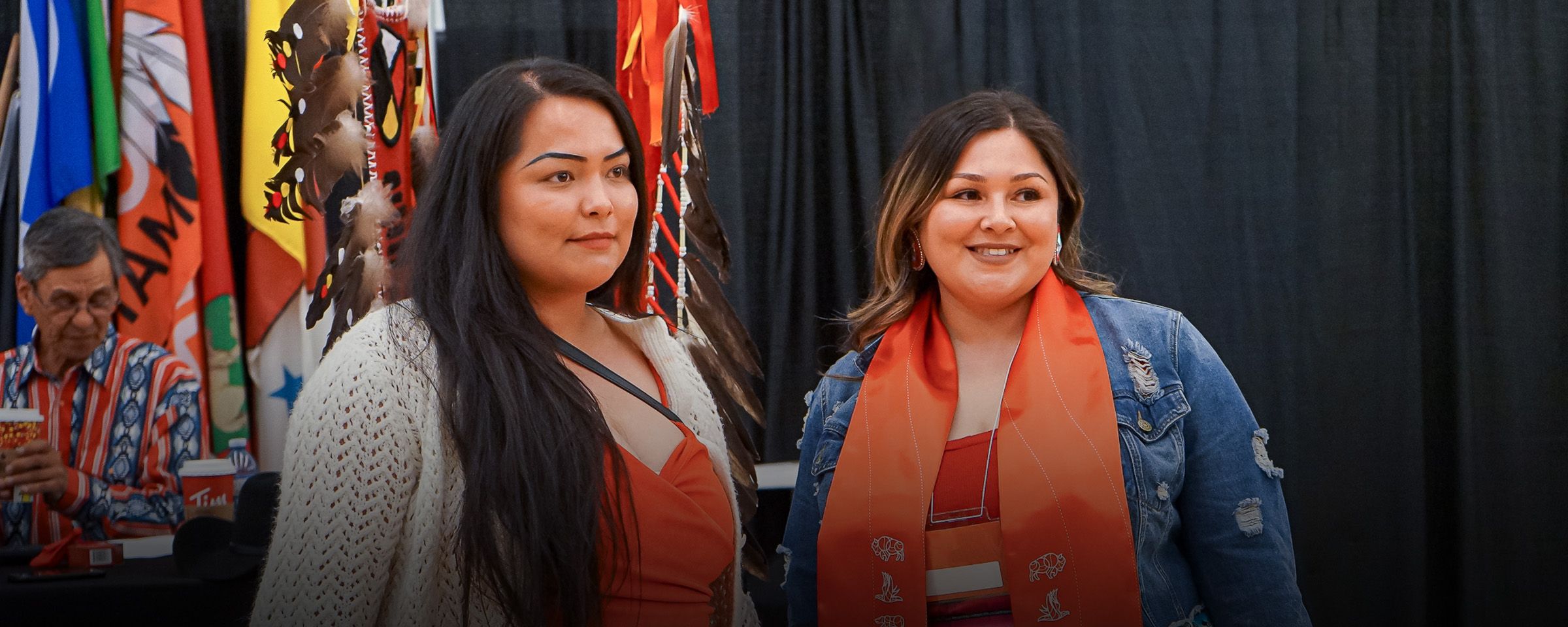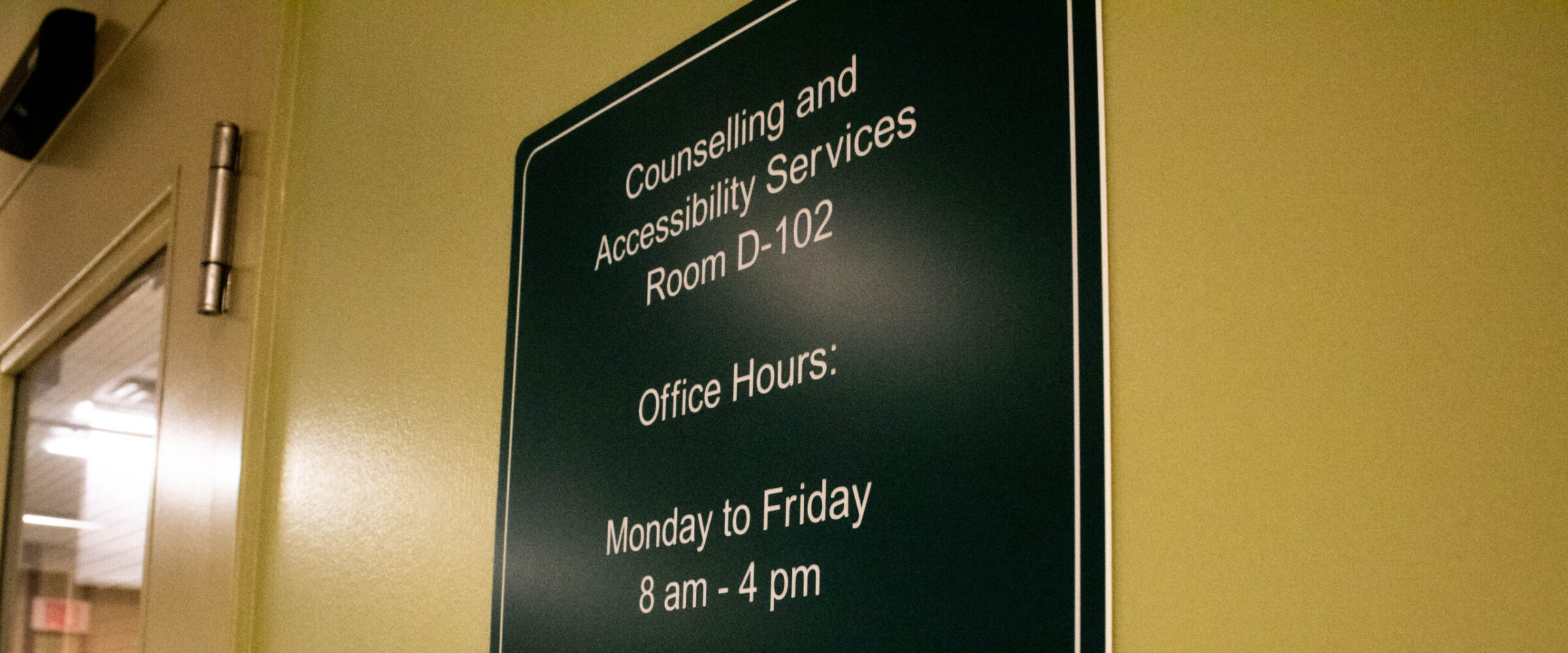The intersection of Indigeneity and disability
For Indigenous students at RRC Polytech living with disabilities, the observance of Indigenous Disability Awareness Month has potential to be a turning point.
Officially adopted in Manitoba in 2021, this year is the first time the College marked the observance.
Teddy Lands (they/them, she/her), a Creative Communications student living with visible and invisible disabilities, says recognizing the intersection between Indigeneity and disability is important to address the unique issues and layered experiences that many Indigenous people living with disabilities face in everyday life.
“If I’m having a hard day and people see me staggering a little bit while walking, or my eyes start wandering, they make assumptions about me because I’m Indigenous. It doesn’t occur to them first that I might have a disability,” says Lands.
According to the 2017 Canadian Survey on Disability, Indigenous people were more likely to have one or more disabilities than non-Indigenous people. Disabilities across the board ranged from pain-related conditions and mobility problems to mental health and cognition issues.
Compassion is a huge outcome of raising awareness on disability, especially during Indigenous Disability Awareness Month. Offering help to someone that appears to be having difficulty managing on their own can directly challenge the stereotypes and assumptions people living with disabilities might face.
Lands used Accessibility Services when they entered Creative Communications last year and has since had a range of options to help them be successful—from switching to the part time stream of the program, to regular check-ins with a counsellor, the program coordinator and instructors.

“The network I built at the College is as important as the support network I have at home,” says Lands.
Instructors are provided with information and resources on how to best accommodate student needs, like implementing the use of assistive technology, having accessibility staff to take notes for students, or allowing extensions for assignments and tests, among the many other options. Having that two-way communication helps Lands stay in class.
Lands says observances like Indigenous Disability Awareness Month can help catalyze systemic change as people learn more about how having disabilities and being Indigenous can impact a person’s life. Ensuring people can get access to the resources they need, even if that means going into a deficit, means that decision makers will see the need for these services and act on it.
“Support services should do away with standardized tests,” says Lands, noting standardized evaluations, like IQ tests, don’t necessarily reflect the intelligence of people who don’t fit those standards, whether it’s cultural- or ability-based differences.
“I’ve met people with two-digit IQs who are the most brilliant people I’ve ever met. Just because they’re not textbook smart, doesn’t mean they’re not intelligent. I have cognitive issues that affect my ability to perform academically—doesn’t mean that what I have to contribute isn’t valuable,” says Lands.
Lands, who has dyslexia and other cognitive impairments, says that developing relationships and communicating regularly with instructors, staff, and peers really helps to alleviate the pressure they’re under to perform at the same capacity as those who don’t use accommodations. A program like Creative Communications can be especially challenging for people with cognitive disabilities.
Kelly Stifora, Program Coordinator for Creative Communications, says support is very individualized and that instructors and students both rely on counsellors to coordinate solutions for meeting student needs.
“Students need a lot of resilience to be successful, even without the need for accommodations. It’s a matter of leveling the playing field for those students that need those accommodations,” says Stifora. “Academically speaking, students who have accommodations for their needs are just as successful as students who don’t use accommodations,” says Stifora.
Additionally, 4 Seasons of Reconciliation training is mandatory for all RRC Polytech staff and faculty to acquire a baseline knowledge of the initiatives in Truth and Reconciliation at the College and how these initiatives contribute to the healing of Indigenous peoples in our community. This training is supplemented by voluntary professional development opportunities, like the blanket exercise.
As for Lands, they say the current approach is a good start and has been working for them so far.
“After CreComm, I want to use my diploma and my experience in social work to influence change in education policies to be more forgiving for people with disabilities and cultural differences. It’s not just for me, but for my daughter and others living with disabilities, Indigenous or not,” says Lands.
For now, raising awareness during Indigenous Disability Awareness month is the first step in making sure students know that supports are available for them.
Students, staff and faculty can visit Accessibility Services at the College’s Winnipeg campuses in person Monday to Friday from 8am to 4pm in room D102 at the Notre Dame Campus and in room P210 at the Roblin Centre. Accessibility Services has a page on RRC Polytech’s website to find more information on their services or to book appointments virtually. Staff members who need accommodations to work can contact their immediate supervisors or the Supportive Employment Program.
If you’d like to contribute to future professional development opportunities, the Diversity Self-Identification Survey helps the College to get a better picture of where we can provide more supports and better inform EDI initiatives.

